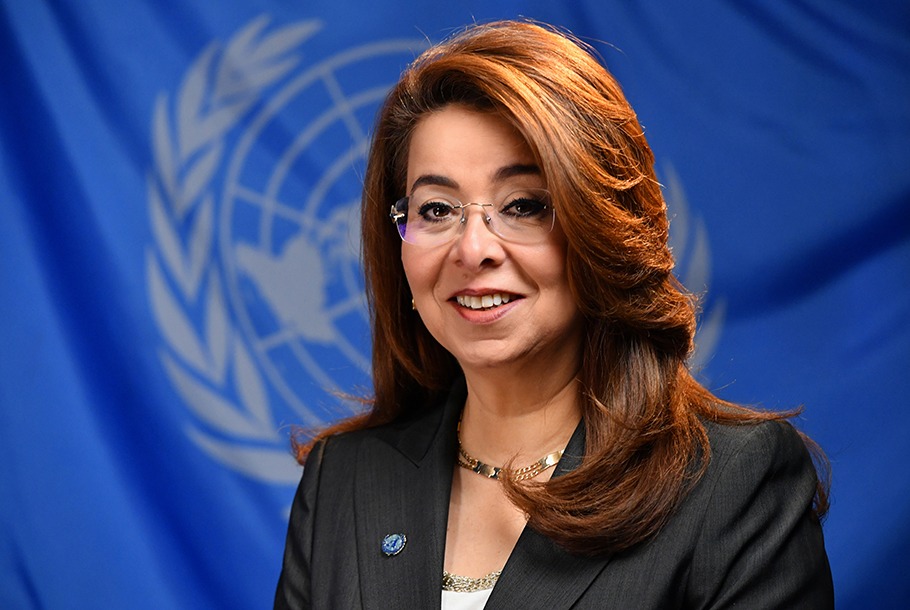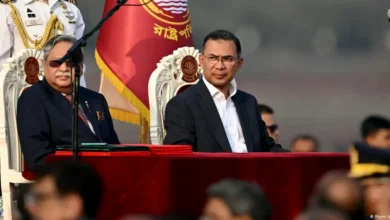UN convention on combating cybercrime: A landmark international step against escalating threats
In an era where technology connects the world, organized criminal groups are exploiting digital tools to commit sophisticated cross-border crimes, demanding urgent, unified international action to strengthen global cybersecurity and protect societies.

By Ghada Waly,
Under-Secretary-General of the United Nations
and Executive Director of the UN Office on Drugs and Crime (UNODC)
Across the globe today, organized criminal groups are exploiting digital tools in unprecedented ways, causing immense and ever-growing losses and consequences. This reality demands urgent, decisive international action to confront this mounting threat.
In today’s rapidly evolving technological landscape, transnational criminal organizations have become more agile and dangerous than ever. Operating through regional and global networks, they generate enormous illicit profits and launder the proceeds of crime across borders.
Technology now enables these groups to carry out operations from virtually anywhere in the world, exploiting legal and technical loopholes while targeting high-profit areas with unprecedented speed and scale.
Criminals employ digital tools to steal money, data, and sensitive information. They also use technology to commit traditional crimes such as illicit trafficking, money laundering, and fraud — even selling criminal tools and services on digital platforms.
Transnational organized crime takes many forms in the modern era: online sexual exploitation of women and children, cyberattacks that disrupt public services, and the sale of dangerous drugs on dark web marketplaces, among others.
Research by the UN Office on Drugs and Crime shows that some fraud networks have begun using artificial intelligence to execute scams targeting victims worldwide, while employing cryptocurrencies to launder criminal proceeds.
We are witnessing the emergence of a new generation of organized cybercrime — and the international community must unite to confront it. While criminal networks swiftly adopt the latest technologies to evade accountability and maximize profits, global efforts to combat such crimes remain fragmented and insufficient.
This challenge affects all nations. In the United States, for example, FBI data show that losses from cybercrime rose by 33% between 2023 and 2024, exceeding $16 billion. In Europe, Eurojust reported a 25% increase in cybercrime cases over the same period.
If such challenges are daunting for advanced economies, they are even more severe for developing nations, where digital transformation is accelerating faster than the capacity to manage its associated risks.
Sub-Saharan Africa illustrates this gap vividly: while digital technology use is surging, only five countries from the region rank in the top tier of the International Telecommunication Union’s Global Cybersecurity Index.
Moreover, cybercriminals can exploit compromised digital systems in one country to launch attacks elsewhere. Reports indicate that some developing countries are used as testing grounds for new cyberattack methods and technologies.
This underscores the urgent need to strengthen the capacity of governments and societies to respond to cybercrime — by developing robust legislation, training personnel, equipping agencies with modern tools, enhancing international cooperation, and promoting digital literacy and preventive awareness.
In this context, the United Nations Convention on Combating Cybercrime, opened for signature in Hanoi, Vietnam, on October 25, 2025, marks a historic milestone. The Convention is the outcome of five years of negotiations among UN Member States, involving over 160 stakeholders — including technology companies, civil society organizations, and academic experts. Adopted by the UN General Assembly in December 2024, it is the first international treaty of its kind, designed to foster international cooperation and safeguard human rights in the fight against cybercrime.
Supported by the UNODC, which provided legal, technical, and organizational expertise throughout the negotiation process, the Convention also represents a triumph of multilateral diplomacy.
Once in force, it will establish the world’s first global framework for the collection and exchange of digital evidence — a vital step toward bringing to justice criminals who exploit the digital realm and disparities in national legislation to escape accountability. It will empower law enforcement agencies to collaborate across borders to obtain and use digital evidence in prosecutions.
The Convention defines crimes by their actions and outcomes, rather than by the technologies used, ensuring its continued relevance amid rapid technological evolution. It also takes major strides in protecting victims, especially women and children, by criminalizing offenses such as the non-consensual sharing of intimate images and the online sexual exploitation of minors.
Confronting cybercrime requires collective resilience and cooperation. This new treaty provides clear, universally agreed international rules and a framework for delivering training and resources — particularly to strengthen responses in developing countries. It invites all nations to join this new international framework and invest in a safer digital future for all.
At the UN Office on Drugs and Crime, we have developed a concrete action plan to deliver the technical assistance countries need to implement and benefit from the Convention — paving the way toward a more secure and just digital world.












